
Ronaldo and his teammates from the Saudi football club, Al-Nassr FC, arrived in Tehran on Monday.
The club is scheduled to face the Iranian football club, Persepolis FC, tonight at Azadi Stadium as part of the AFC Champions League tournament.


Ronaldo and his teammates from the Saudi football club, Al-Nassr FC, arrived in Tehran on Monday.
The club is scheduled to face the Iranian football club, Persepolis FC, tonight at Azadi Stadium as part of the AFC Champions League tournament.
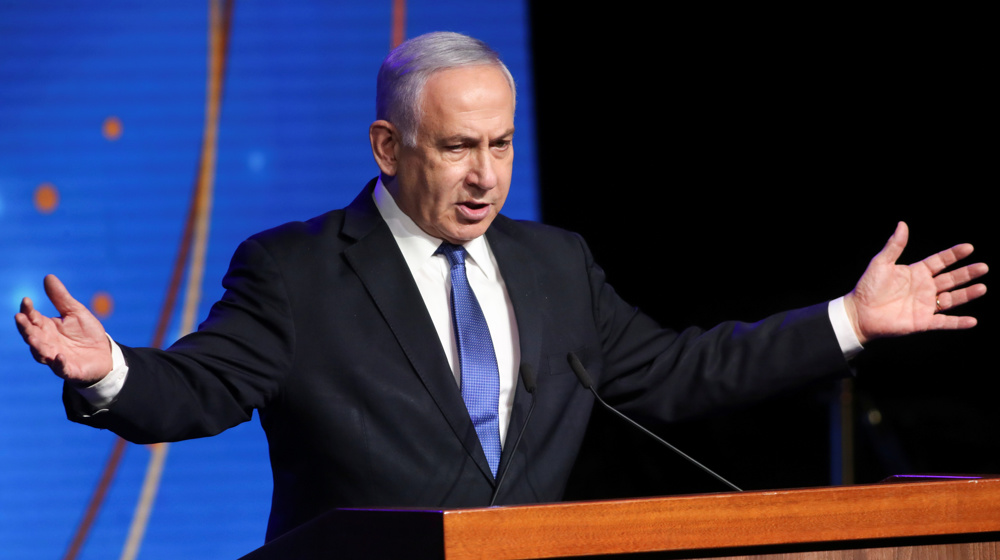
A group of former Israeli officials has warned leaders on the US Senate Foreign Relations Committee that the policies of the incumbent far-right administration led by Prime Minister Benjamin Netanyahu are “dismantling” the Israeli military.
According to a damning letter, signed by 51 former officials from the Israeli military, Mossad spy agency, so-called internal security service Shin Bet, police, and the ministry of military affairs, Netanyahu was “leading acts aimed at harming the Israeli judicial system and the [so-called] Supreme Court in a way that will nullify its independence, and subordinate it to Netanyahu and his fellow politicians.”
The Israeli officials went on to state that Netanyahu’s efforts were “transforming Israel into an autocracy that harms its strength through dismantling the army, its military establishment, economy, and risks the social fabric of the people”.
Among the dozens of signatories to the letter are former Israeli minister of military affairs and military chief of staff, Moshe Ya’alon; former Mossad chief, Tamir Pardo; and former prime minister, minister of military affairs, and Israeli army chief of staff, Ehud Barak.
Pardo, who was in charge of Mossad from 2011 to 2016, made headlines on September 6 when he said Israel is enforcing an apartheid system against Palestinians in the occupied West Bank, equating the treatment of Palestinians as similar to the racial separation implemented in South Africa that ended in 1994.
The letter comes as Netanyahu set off for a visit to the US. His first stop is in San Jose, California. He is then expected to travel to New York to address the UN General Assembly and meet with US President Joe Biden.
Netanyahu has yet to secure a visit to the White House, and two far-right members of his coalition, Itamar Ben-Gvir, and Bezalel Smotrich, have so far been snubbed by the Biden administration.
Earlier this month, hundreds of Israeli high school students announced that they will refuse to serve in the military in protest against the policies of the incumbent far-right administration, including the controversial judicial overhaul.
Youth Against Dictatorship, in a statement released at the Herzliya Hebrew Gymnasium high school in central Tel Aviv, also explicitly tied their cause to opposition to the oppression of Palestinians across the occupied West Bank.
“As young women and men about to be conscripted into Israeli military service, we say NO to dictatorship in Israel and in the Occupied Palestinian Territories. We hereby declare that we refuse to join the military, until democracy is secured for all,” read the statement.
The students noted that the “dictatorship” that Palestinians in occupied territories have experienced “for decades” is now oozing into other regions and is “directed” against them.
Critics have accused Netanyahu of using the judicial overhaul plan to remain in power. They say he, who is on trial on several counts of corruption charges, is also attempting to use the scheme to quash possible judgments against him.
The protests have gained momentum since the end of July, when the Knesset passed the first bill of the overhaul plan, which restricted the Supreme Court’s ability to declare the cabinet’s decisions “unreasonable.”
More than 10,000 reservist soldiers, including members of the elite intelligence unit 8200 and Air Force pilots, have said they would no longer show up for duty on a voluntary basis in protest.
Former politicians and members of the security establishment have also declared support for the boycott.
Former Shin Bet chief Yuval Diskin said at a demonstration in Tel Aviv in July that the time had come “to decide on the suspension of volunteering for the reserves until the legislation is completely stopped.”
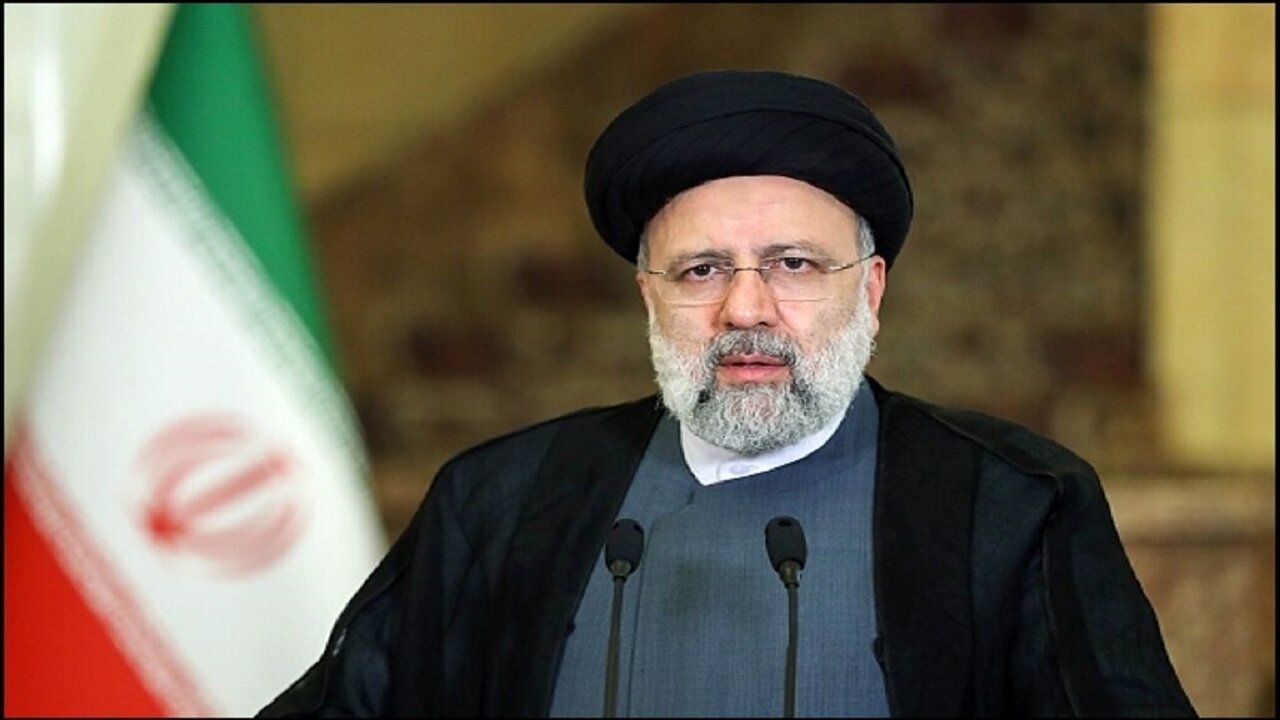

Raeisi, who has travelled to New York to participate in the 78th United Nations General Assembly, met and discussed with a group of American foreign policy intellectuals on Monday evening local time.
Speaking about the nuclear agreement and the prospect of Iran-US relations, Raeisi cited the record of the US government’s violation of the JCPOA despite the full implementation of obligations by the Islamic Republic of Iran.
“With the change of the government in the US and the declaration of readiness to return to its commitments, the Islamic Republic of Iran announced its readiness and pursued negotiations seriously for a good agreement, but after some time it became clear that the opposite parties did not adhere to their commitments,” he said.
Referring to the miscalculation of the Americans in the [last year’s] riots, the President said, “The American government, due to the wrong advice of some seemingly Iranian mercenary elements, as well as the wrong estimates of the spy services, abandoned the negotiations and set its heart on the results of the riots, while the Islamic Republic of Iran is now a strong tree and these impulses have no effect on its stability.”
Raeisi considered the victory of the Iranian nation against the combined war as a continuation of the national victories against all kinds of past enmities, such as the victory in the Holy Defence [refers to the era of the imposed war by ex-Iraqi dictator Saddam Hussein on Iran (1980–88)] and overcoming the cruel sanctions, adding, “The ill-wishers of the Iranian nation sought to repeat the Syrian model in Iran, but they were wrong because they have still not known the people of Iran and the Islamic revolution.”
Referring to the renewed desire of the United States to resume negotiations after the failure of the unrest project, the President noted, “Negotiations were conducted by some countries, and the recent exchange of prisoners was one of its effects.”
Speaking about Trump’s crime in the assassination of Martyr Soleimani, President Raeisi called that brave general the commander of the fight against terrorism in the region and his assassination an assassination of the fight against terrorism.
“Martyr Soleimani was the commander of the fight against terrorism and ISIS, and if he hadn’t stopped ISIS, terrorism would be spreading all over Europe”.
The President called the assassination of Martyr Soleimani an example of state terrorism and stressed the trial of the perpetrators of this horrible crime.
Elsewhere in his remarks, Raeisi emphasized the security of international waterways and said, “The presence of Americans in the Persian Gulf and the tampering with ships and their seizure causes insecurity in the region.”
He also spoke about the effects of Iran’s joining BRICS, by listing the prominent role of the member countries in the economy and gross production in the world, saying, “Considering Iran’s outstanding capacities and position in the region, Iran’s joining this group will make it more powerful.”
“Regarding sanctions, Biden said at the beginning of his career that he does not accept Trump’s method of withdrawing from the JCPOA. So far, we have not seen any different action in practice. The expectation is that if the US government says it adheres to its commitments in words, it will show its adherence in practice,” he noted.
Raeisi considered the International Atomic Energy Agency’s declaration that Iran’s nuclear activities are peaceful as a clear reason for the cruelty of the sanctions against Iran and said, “The Islamic Republic of Iran, before any law, regulations and supervision, according to the fatwa of the Supreme Leader of the Islamic Revolution, considers any production and use of nuclear weapons prohibited.”
Speaking about the status of women in Iran, the President, by listing the successes of women in various scientific and sports fields as well as their effective and role-playing presence in the political, managerial and social sectors, said that the West’s abuse of last year’s events was a deceptive cover to defend the rights of women.
“In the incident last year when a girl had an accident, all medical investigations showed that she was not hit by the police, but did the Western and American media agree to reflect this fact?”
Raeisi stated that the highest number of female prisoners in the world belongs to the United States, adding, “Recently in the United States, a young pregnant woman was killed by the American police on suspicion of stealing from a store, which is one of the 1,200 cases that occurred last year. He was killed by the American police, but why does the American media not search for the root cause and clarify the details of such murders?”
He also spoke about the war in Ukraine, saying, “We are against the war and we are ready to mediate in order to end it, but the taxes of the American people pay for war-mongering and to fill the pockets of arms factories from the sale of weapons in this field.”
Raeisi found the claim of Iran’s provision of weapons to Russia to be devoid of truth and added, “Our advice to the American government is to stop fighting and sanction nations. Historical findings show that in the last 250 years, America has not been at war for only 20 years.”
The President elsewhere stressed that the Islamic Republic has never left the negotiation table because it has clear and firm logic for its approaches and actions, and said, “Iran’s released resources in South Korea were Iran’s right and America must answer why it cruelly stopped the right of our nation.”
The President stated, “America must have understood by now that using the language of force, either in the form of sanctions or threats against the Iranian nation, is not an effective tool, of course, our judgment will be based on actions and what can gain our trust will be changing this coercive behaviour and acting based on commitments, which America has not been successful in this field so far.”
MNA/President.ir
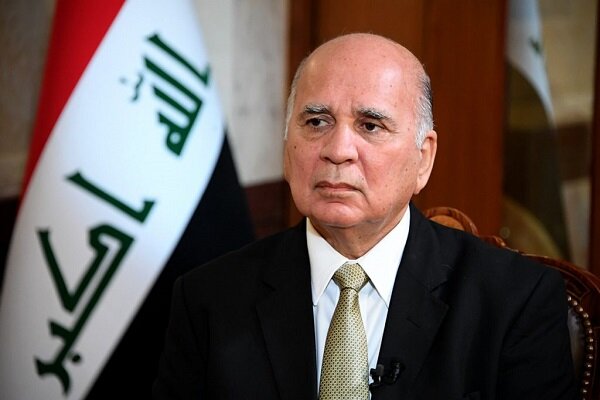

Speaking on Monday, Fuad Hussein said the armed groups and their families will be relocated to five camps, which have been set up in Iraq’s Kurdistan region.
The top Iraqi diplomat reiterated his country’s commitment to the security agreement with Iran, saying the Kurdistan Regional Government (KRG) has taken necessary measures in accordance with Baghdad’s agreement with Tehran.
Stressing that Iraq pursues peaceful approaches based on dialogue and respect for its neighbors, Hussein said Baghdad opposes any act of violence against its national sovereignty.
Back in March, Iran and Iraq concluded a security agreement under which the Iraqi government promised to disarm terrorist and separatist groups based in the Kurdistan region by September 19, vacate their military barracks, and transfer them to the camps established by the Baghdad government.
Iran’s Defense Minister Brigadier General Mohammad Reza Ashtiani said on Sunday that Tehran will not extend the ultimatum given to Iraq to disarm Kurdish separatist groups along the border with Iran, warning Baghdad of an “eleventh-hour decision” on the matter.
“We do not have any extension [to the deadline]. We will act in due time in accordance with the agreement made [with Iraq],” he said.
Reports say Iraq’s national security advisor, KRG minister of interior, and special representative of the United Nations secretary general for Iraq have met in Erbil, the capital of the Kurdistan region, and discussed the implementation of the security pact.
Last week, Bafel Talabani, leader of the Patriotic Union of Kurdistan (PUK), held talks with the Iranian foreign minister and Parliament speaker, Mohammad Baqer Qalibaf.
Meanwhile, Iraqi media reported on Saturday the country’s border guards have managed to gain full control over an area on the Kurdistan region’s border with Iran and drive out terrorist groups following fierce clashes.
Iraq’s Shafaq News Agency cited the country’s Border Guard Forces as saying in a statement late on Friday that they had seized border points in Erbil Province and raised Iraq’s national flag in the area after clashes with the “outlaws.”
The security agreement between the two countries came after anti-Iranian terrorist groups residing in the Iraqi Kurdistan region increased their malign activities, especially in border areas.
Responding to their activities, Iran’s Islamic Revolution Guards Corps (IRGC) has launched several rounds of strikes against their positions since September 24 last year, vowing to continue the attacks until the groups are disarmed.
Iran has, on countless occasions, warned Iraqi Kurdistan’s local authorities that it will not tolerate the presence and activity of terrorist groups along its northwestern borders, saying the country will give a decisive response should those areas become a haven for anti-Tehran terrorists.
MNA/PressTV
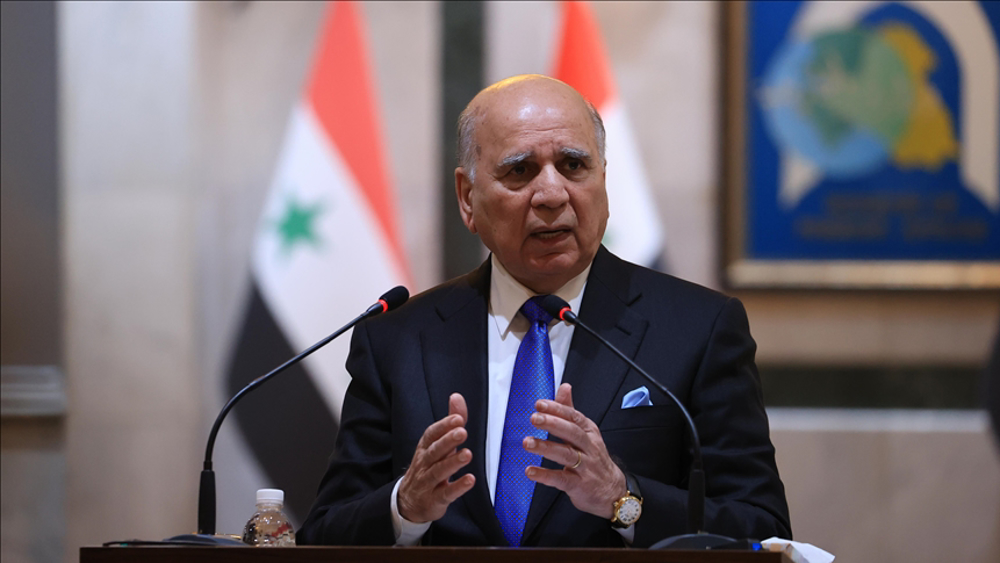
Iraq’s foreign minister says Kurdish armed groups along the border with Iran have handed over their heavy weaponry as the deadline for their disarmament and relocation approaches based on a security deal between Tehran and Baghdad.
Speaking on Monday, Fuad Hussein said the armed groups and their families will be relocated to five camps, which have been set up in Iraq’s Kurdistan region.
The top Iraqi diplomat reiterated his country’s commitment to the security agreement with Iran, saying the Kurdistan Regional Government (KRG) has taken necessary measures in accordance with Baghdad’s agreement with Tehran.
Stressing that Iraq pursues peaceful approaches based on dialogue and respect for its neighbors, Hussein said Baghdad opposes any act of violence against its national sovereignty.
Back in March, Iran and Iraq concluded a security agreement under which the Iraqi government has promised to disarm terrorist and separatist groups based in the Kurdistan region by September 19, vacate their military barracks, and transfer them to the camps established by the Baghdad government.
Iran’s Defense Minister Brigadier General Mohammad Reza Ashtiani said on Sunday that Tehran will not extend the ultimatum given to Iraq to disarm Kurdish separatist groups along the border with Iran, warning Baghdad of an “eleventh-hour decision” on the matter.
“We do not have any extension [to the deadline]. We will act in due time in accordance with the agreement made [with Iraq],” he said.
Reports say Iraq’s national security advisor, KRG minister of interior, and special representative of the United Nations’ secretary general for Iraq have met in Erbil, the capital of the Kurdistan region, and discussed the implementation of the security pact.
Last week, Bafel Talabani, leader of the Patriotic Union of Kurdistan (PUK), held talks with the Iranian foreign minister and Parliament speaker, Mohammad Baqer Qalibaf.
Meanwhile, Iraqi media reported on Saturday the country’s border guards have managed to gain full control over an area on the Kurdistan region’s border with Iran and drive out terrorist groups following fierce clashes.
Iraq’s Shafaq News Agency cited the country’s Border Guard Forces as saying in a statement late on Friday that they had seized border points in Erbil Province and raised Iraq’s national flag in the area after clashes with the “outlaws.”
The security agreement between the two countries came after anti-Iranian terrorist groups residing in Iraqi Kurdistan region increased their malign activities, especially in border areas.
Responding to their activities, Iran’s Islamic Revolution Guards Corps (IRGC) has launched several rounds of strikes against their positions since September 24 last year, vowing to continue the attacks until the groups are disarmed.
Iran has, on countless occasions, warned Iraqi Kurdistan’s local authorities that it will not tolerate the presence and activity of terrorist groups along its northwestern borders, saying the country will give a decisive response should those areas become a haven for anti-Tehran terrorists.
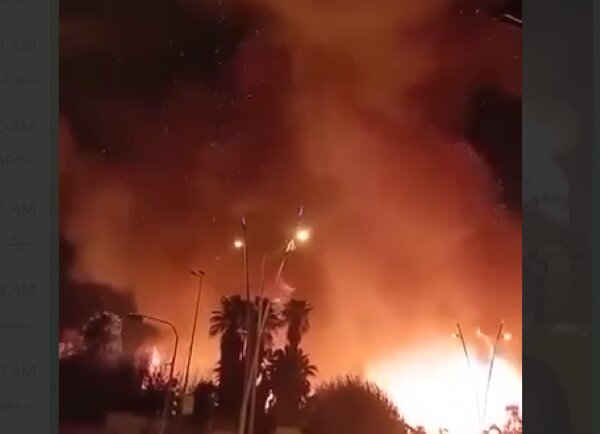
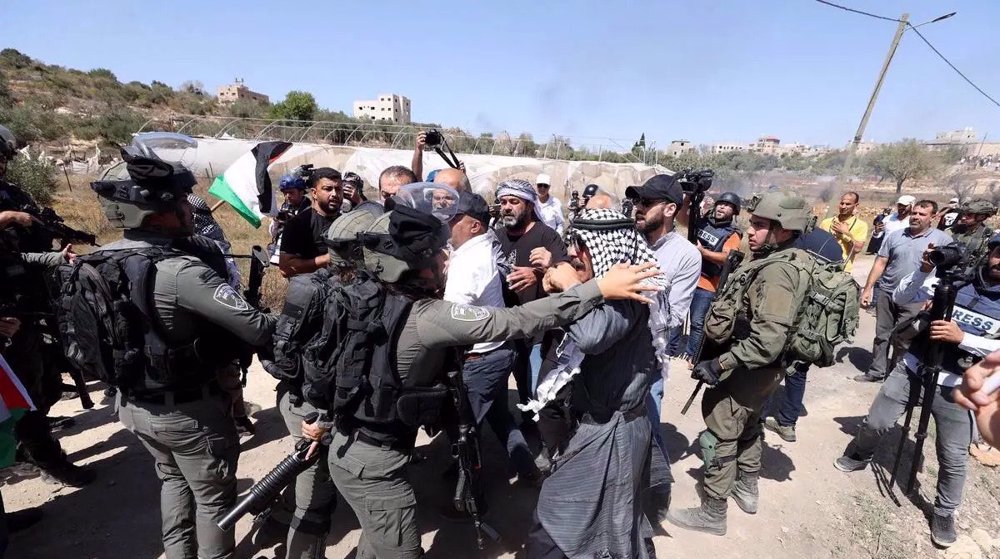
The Israeli human rights organization B’Tselem says the regime is carrying out a forcible transfer of the Palestinians in the occupied West Bank.
In a statement released on Monday, B’Tselem said international regulations forbid the forcible transfer of residents of an occupied territory. “This is an illegal policy that implicates Israel in the war crime of forcible transfer.”
The organization said the Palestinian residents face continuing assaults by settlers in the occupied West Bank. The group said the regime was encouraging settler attacks against the Palestinians.
“This incessant violence is encouraged by the Tel Aviv regime and serves it,” the group said. “They praise violent settlers and erase, with their actions, even the appearance of a functioning law enforcement system.”
Driving shepherds off their fields, physically assaulting local residents, invading their homes in the middle of the night, setting fires, scaring flocks, vandalizing crops, stealing property, blocking roads and destroying water tanks – this is what settlers do to Palestinians day in and day out, forcing a horrifying routine on dozens of Palestinian communities, the group said.
“With no one to protect them and having no other choice, at least six communities have fled their homes in the past two years. Dozens more are in immediate danger of forced displacement,” B’Tselem said.
In March, Israeli Finance Minister Bezalel Smotrich, notorious for making inflammatory statements against the Palestinians, called for the destruction of the Palestinian village of Huwara, days after settlers raided a village near Nablus.
A panel of United Nations experts earlier this year called on the international community to take action to stop systematic housing demolition, arbitrary displacement and forced evictions of the Palestinian people in the West Bank. They also warned about the regime’s endorsement and escalated practice of punitive evictions and demolitions over alleged attacks by the Palestinians against settlers, such as revoking identity documents, citizenship and residency rights and social security benefits.
“Israel’s tactics of forcibly displacing and evicting the Palestinian population appear to have no limits. In occupied East al-Quds, tens of Palestinian families also face imminent risks of forced evictions and displacement, due to discriminatory zoning and planning regimes that favor Israeli settlement expansion – the act that is illegal under international law and amounts to a war crime,” the panel said.
Israel occupied the West Bank, including East al-Quds, in a Western-backed war in 1967. Ever since, it has been dotting the territory with hundreds of settlements that house thousands of settlers. All the settlements are illegal under international law. The UN Security Council has condemned Israel’s settlement activities in the occupied territories in several resolutions.
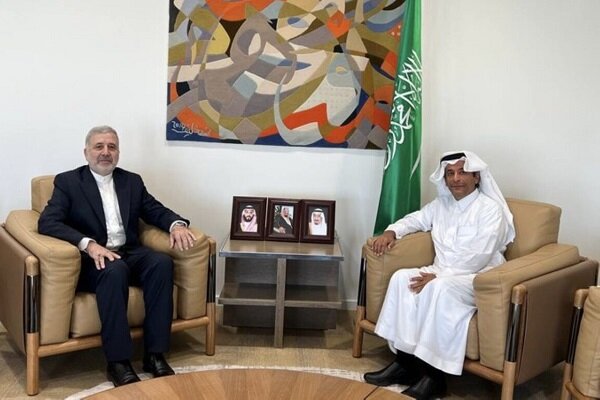

During the meeting, the two sides conferred on the bilateral relations between Tehran and Riyadh, as well as other issues of mutual interest.
Iran’s new ambassador started his mission in Riyadh on September 5 after a seven-year hiatus.
The two countries agreed to resume diplomatic ties back in March following a Chinese-brokered deal after a seven-year estrangement.
Iran officially reopened its embassy in Riyadh in June, followed by its consulate in Jeddah and representative office with the Organization of Islamic Cooperation.
The Saudi embassy in Tehran and its consulate in Mashhad have also resumed operations.
MP/IRN85231204
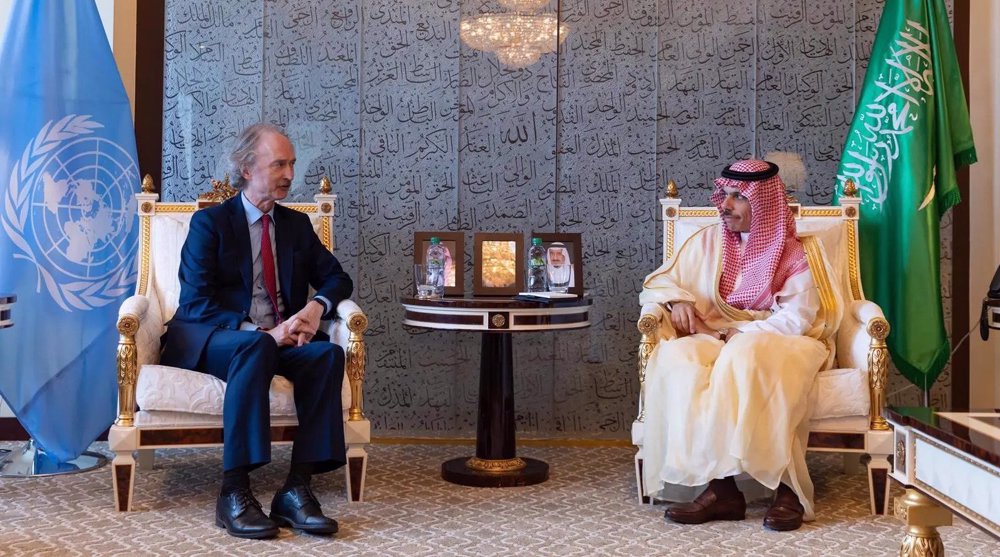
Saudi Arabia’s foreign minister has underscored the necessity of finding a political solution to the Syria crisis, expressing Riyadh’s commitment to the stability and territorial integrity of the conflict-ravaged Arab country.
Prince Faisal bin Farhan Al Saud made the remark in a meeting with Geir Pedersen, the United Nations special envoy for Syria, on the sidelines of the 78th session of the UN General Assembly in New York on Monday.
“During the meeting, they discussed the latest developments on [a] political solution to the Syrian crisis and the efforts exerted by the kingdom of Saudi Arabia and the UN in this regard,” the state-run Saudi Press Agency said on its website.
“Prince Faisal reiterated the kingdom’s keenness to exert all efforts to reach a political solution to the Syrian crisis to preserve its unity, security, stability and Arab affiliation, and achieve progress and prosperity for its people,” the agency added.
Since 2014, the US has deployed forces and military equipment in Syria without any authorization from Damascus or a UN mandate under the pretext of fighting Daesh, which emerged as Washington was running out of excuses to extend its regional meddling or enlarge it in scale.
American forces sustain their illegal presence on the Syrian soil although Damascus and its allies defeated the Takfiri terrorist group in late 2019.
Saudi Arabia’s commitment to the preservation of Syrian sovereignty comes as Riyadh and Damascus agreed in March to resume diplomatic relations and re-open embassies after more than a decade.
The move prompted other Arab countries to race for the re-establishment of ties with Syria.
Two months later, Arab government representatives in Cairo voted to return Syria to the Arab League after a 12-year suspension and all 13 of the 22 member states that attended the session endorsed the decision.
The Arab League suspended Syria’s membership in November 2011, citing an alleged crackdown by Damascus on opposition protests, with Syria denouncing the move as “illegal and a violation of the organization’s charter.”
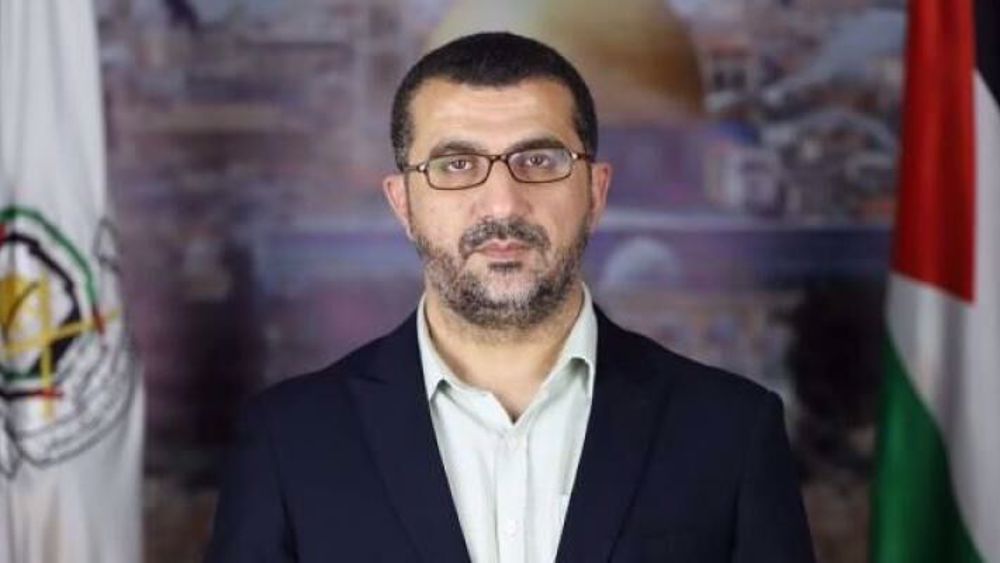
The Palestinian resistance movement Hamas says Monday’s attacks on gatherings and checkpoints of Israelis in the occupied West Bank were a response to the storming of the al-Aqsa Mosque compound a day before by Israeli extremists.
Hamas spokesman Muhammad Hamadeh made the remarks hours after shooting attacks were carried out against Israeli military forces and settlers in various parts of the occupied West Bank.
Hamadeh said the attacks were “a natural response” to the criminal acts of the occupiers who had stormed al-Aqsa Mosque on Sunday.
The Hamas official said the attacks on the Israelis should be viewed as part of a mobilization campaign in Palestine to defend holy Muslim sites in the occupied city of al-Quds against storming attacks by the settlers.
Extremist Israelis have been storming al-Aqsa Mosque in recent months as part of what many experts believe to be a plot to make a regular presence in the holy sites to turn it to a temple.
Supported by the Israeli regime and its security forces, settlers have made calls for gatherings of the extremists at the al-Aqsa Mosque compound concurrent with Jewish New Year holidays that began on September 17.
Palestinians have reacted angrily to the presence of Israelis in the Mosque by staging protests and carrying out attacks on regime forces and extremist settlers.
Separately on Monday, Saudi Arabia condemned the latest act of incursion by Israeli extremists against al-Aqsa Mosque, holding the regime in Tel Aviv directly responsible for repercussions of such provocations.
In a statement, the Saudi Foreign Ministry said the Sunday storming of al-Aqsa Mosque by a group of Israeli extremists, which took place under the protection of the Israeli forces, constituted “a provocation to the feelings of Muslims around the world.”
“The Ministry of Foreign Affairs holds the Israeli occupation forces fully responsible for the repercussions of these continued violations,” said the statement.
The al-Aqsa Mosque compound is regarded as a holy place where only Muslims can hold prayers and religious rituals.